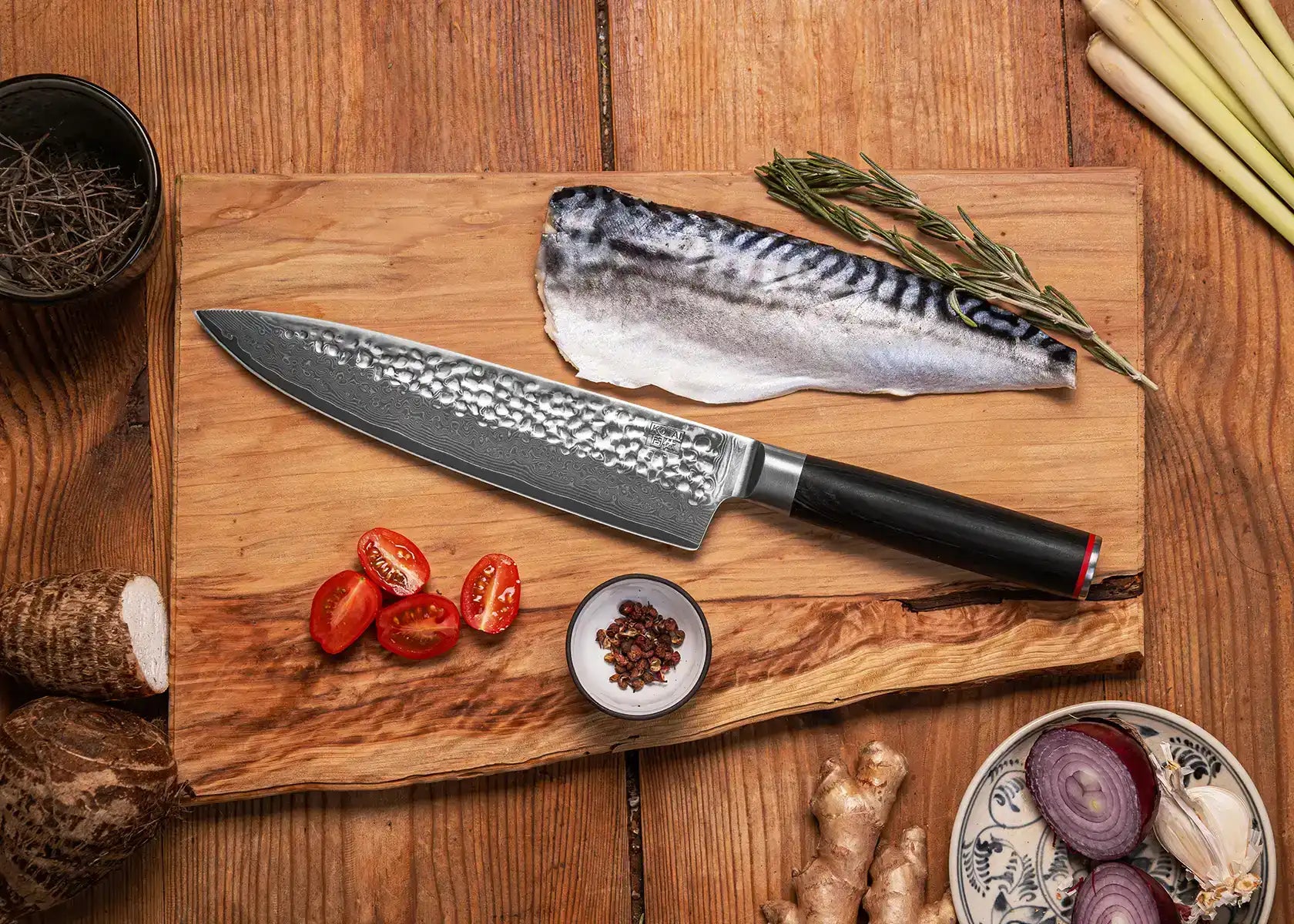Few things capture the essence of craftsmanship and utility as beautifully as Damascus knives. For kitchen professionals, these knives not only represent the pinnacle of functionality but also embody a storied tradition of knife making. Renowned for their distinctive wavy patterns and exceptional resilience, Damascus knives are a coveted addition for any serious collector's arsenal.
If you're a kitchen professional seeking tools that blend performance with elegance, understanding the nuances of Damascus knives for collectors is crucial. Not only do these knives offer superior cutting capability, but their historical significance and artistic beauty make them a standout choice for those looking to elevate their culinary experience.

What Makes Damascus Knives Unique?
The allure of Damascus knives lies in their unmatched quality and the richness of their history. Originating from steel crafted in the ancient Middle East, the distinctive wavy patterns arise from skilled folding techniques. For modern collectors and kitchen professionals, these knives offer a tangible link to a long lineage of mastery. If you are new to this, learning how to start with Damascus knives could be your first step towards becoming an aficionado.
Moreover, the layered steel composition not only presents a unique aesthetic appeal but also contributes to the blade's strength and flexibility. Such characteristics are invaluable in a professional kitchen, where precision and durability are essential.
The Role of Damascus Knives in Professional Kitchens
In the hands of seasoned kitchen professionals, Damascus knives can truly shine. The ability to maintain a sharp edge longer than typical stainless steel blades is a tremendous advantage during extended periods of food preparation. This endurance allows chefs to work efficiently without frequent breaks for sharpening.
Furthermore, the balance and weight of these knives contribute to an effortless, ergonomic experience. Professional chefs and collectors alike appreciate the tactile feedback and control that only a well-crafted Damascus knife can provide.
Evaluating the Authenticity of Damascus Knives
It's important for collectors to ensure the authenticity of a Damascus knife before investing. Genuine Damascus steel offers unparalleled quality, but imitations abound. Inspect the blade for signature, wavy patterns formed by folded metal layers. Reading through resources such as how Damascus steel is crafted can provide deeper insight into authenticity.
Additionally, consulting with trusted retailers and asking about the knife's provenance can help you make informed decisions. A pedigree involving reputable knife makers and a visible history of craftsmanship are primary indicators of a quality piece.
How Collectors Choose Their Damascus Knives
When it comes to selecting the perfect knife, collectors consider several factors: the purpose of usage, the artistry of the pattern, and the knife's functionality. A collector with a culinary background would focus on the latter. Chefs appreciate knives that reflect their personal style and enhance their operational flow, while also being pieces of artthey were, after all, created to endure the pressures of the kitchen.
For home chefs, it is crucial to select tools that combine beauty and practicality, as evidenced in resources like Damascus knives for home cooks. Ensuring that the knife can handle its specific tasks in a kitchen setting adds a layer of practicality to an already aesthetically appealing tool.

Frequently Asked Questions
Q: How should Damascus knives be maintained?
A: Regular maintenance, such as honing and proper cleaning, ensures that Damascus knives retain their sharpness and luster. It is advisable to avoid dishwashers, as they can damage the intricate steel layers.
Q: What are the common uses for Damascus knives in professional kitchens?
A: Damascus knives are versatile tools suitable for slicing, dicing, and chopping, making them ideal for varied culinary tasks ranging from delicate vegetable preparation to robust meat processing.
Q: Can beginners use Damascus knives effectively?
A: Yes, with practice, beginners can enjoy using Damascus knives. Start by learning basic skills and reading guides such as simple cutting techniques to develop confidence and finesse.
For collectors and kitchen professionals, the journey into the world of Damascus knives is as rich as the history surrounding these impressive tools. Whether you're looking to enhance your collection or simply optimize your culinary experience, these knives provide unmatched quality, utility, and beauty.
This article contains affiliate links. We may earn a commission at no extra cost to you.


























